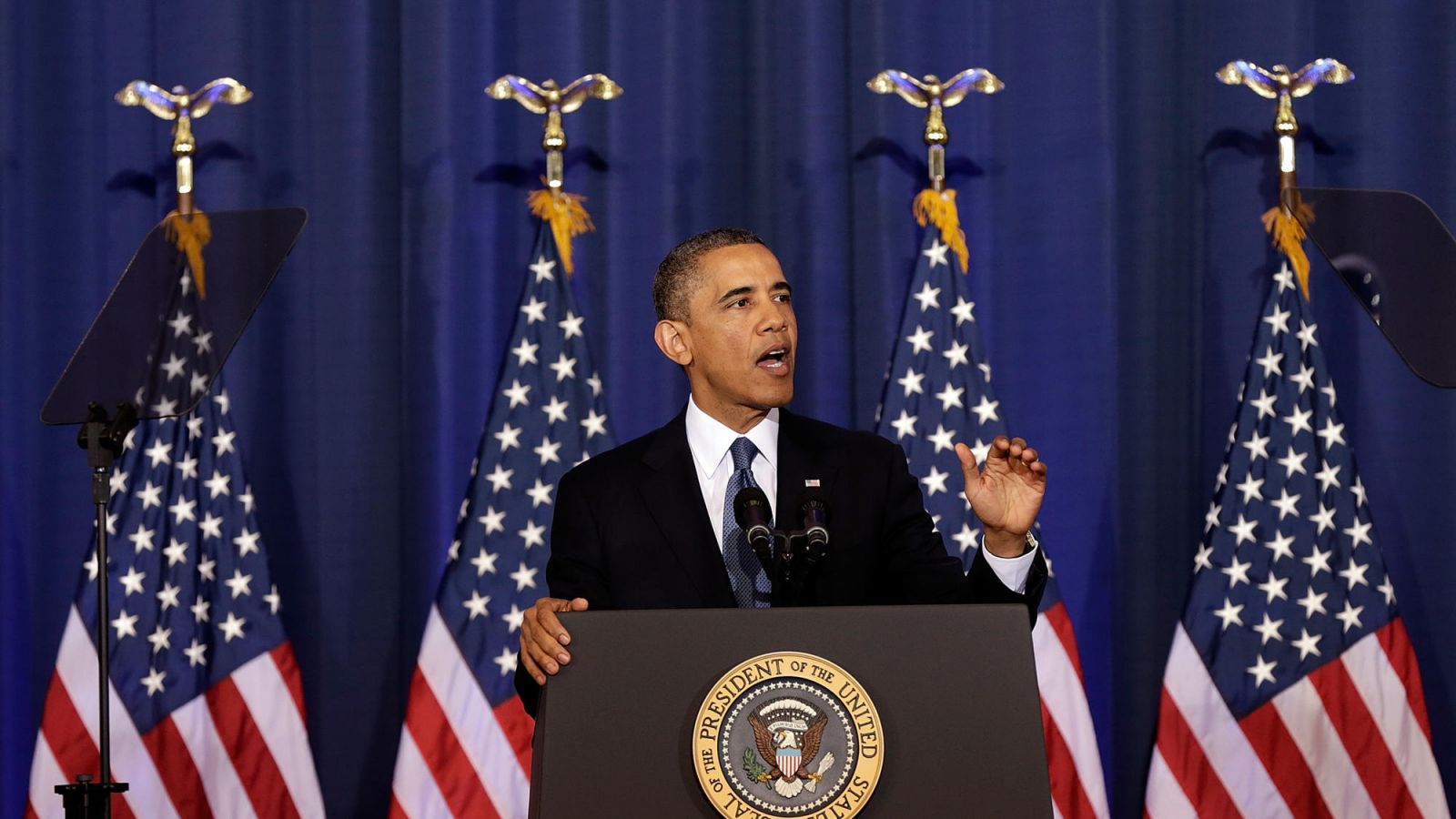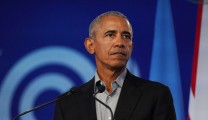Who is Barack Obama?
Barack Obama, born in Honolulu, Hawaii in 1961, was the son of an American mother of Irish heritage, Ann Dunham, and a Kenyan father, Barack Obama Sr.
From his early days, it was clear that leadership qualities were inherent in Obama, suggesting that leaders are indeed born, not made. He graduated from Columbia University with a BA in Political Science and Literature, then attended Harvard Law School, becoming the first black president of the Harvard Law Review.
Obama’s career spanned from being a civil rights attorney to lecturing at the University of Chicago Law School. Entering politics, he served in the Illinois State Senate and the US Senate, focusing on welfare reform, healthcare, and nuclear terrorism prevention.
Elected as the first black President of the United States in 2008, Obama’s presidency was marked by efforts to reform healthcare, address the financial crisis with a stimulus package, and end the “don’t ask, don’t tell” military policy. Not forgetting that, internationally, he led the operation to stop Osama Bin Laden, normalised US-Cuba relations, and signed the Paris Climate Agreement.
His post-presidency involves leading the Obama Foundation, advocating for climate change, and creating documentaries, and he remains a significant political influencer and speaker still to this day.
What Did Barack Obama Do As a Leader?
Barack Obama’s presidency and post-presidency include several notable achievements in leadership.
These are categorised across different domains:
Political Leadership
Healthcare Reform: His most significant legislative achievement was the Affordable Care Act (ACA), which expanded healthcare coverage to millions of Americans and represented a major overhaul of the U.S. healthcare system.
Economic Recovery: He took office during the Great Recession (2008) and implemented the American Recovery and Reinvestment Act (ARRA), which helped stabilise and eventually revive the U.S. economy.
Financial Regulation: The Dodd-Frank Wall Street Reform and Consumer Protection Act was enacted to prevent another financial crisis by imposing new regulations on financial institutions.

Foreign Policy Leadership
Combatting Terrorism: The operation leading to the death of Osama bin Laden was a high point in his foreign policy, significantly impacting the global fight against terrorism.
Nuclear Non-Proliferation: The New START treaty with Russia and the Iran Nuclear Deal (JCPOA) were significant efforts in nuclear disarmament and non-proliferation.
Climate Change Initiatives: Obama played a crucial role in negotiating the Paris Climate Agreement, demonstrating leadership in global environmental policy.
Social and Civil Rights Leadership
Advancing LGBT Rights: The repeal of “Don’t Ask, Don’t Tell” and support for the legalization of same-sex marriage were significant steps in advancing LGBT rights.
Lilly Ledbetter Fair Pay Act: Signed to address the gender pay gap, this was a step towards gender equality in the workplace.
Criminal Justice Reform: Obama’s efforts to address issues within the criminal justice system, included reducing the use of harsh sentences for non-violent offences.
Post-Presidency Leadership
Obama Foundation: His new organisation focused on developing future leaders and promoting community engagement and global problem-solving.
Public Speaking and Writing: Obama continues to influence public discourse through his memoirs, speeches, and essays on democracy, civic responsibility, and social issues.
Advocacy and Community Involvement: He remains active in various causes, including democracy and voting rights, climate change, and support for young leaders.
Barack Obama’s Leadership Traits
Obama’s personal leadership traits are comprised of four main attributes:
Inspirational Communication
Barack Obama is known for his eloquence and ability to inspire others with his speeches and writings.
A Forbes article identifies three aspects of his public speaking manner that make him much in demand: his ability to paint vivid, emotional pictures in the listener’s mind’s eye, the use of mantra-like repetition, and a confident, thoughtful tone of voice, accompanied by expressive hand gestures.
He doesn’t rush or stumble over his words. His communication skills make a huge difference to his success!
It’s worth remembering that Obama had a book deal long before he was known to the public at large. Reviewing “A Promised Land” for the New York Times Book review, Chimamanda Ngozi Adichie commended Obama’s writing skill, noting that the book is “nearly always pleasurable to read,” with “prose gorgeous in places” and “granular and vivid” details.
Calm and Composed Decision-Making
Often praised for his calm demeanour and thoughtful approach to complex issues, Barack Obama was the opposite of a reactive or firebrand President.
The operation to stop Osama Bin Laden in 2011 was a case in point. Important to the recovery of the American psyche, following the horror of 9/11 and the decade of failure in capturing Al Qaeda’s leader, this operation benefited from Obama’s government’s intelligence gathering, risk assessment, advice taking, and cautious deliberation.
This led to a raid on Bin Laden’s compound, with minimal casualties and a successful denouement. The result was announced to the world in a calm, measured manner, with a focus on the national security implications and path ahead.

If you’re looking for further support on improving your decision making skills, check out this article: How To Improve Your Decision Making Skills
Inclusivity and Vision
Throughout his political career, Barack Obama advocated for a more inclusive society and demonstrated a vision for progressive change.
This included the following achievements:
- His determination to push through the Affordable Care Act, despite significant resistance from across the aisle.
- His support for LGBT rights, including the repeal of the “don’t ask, don’t tell” policy in the US military, allowing for a more inclusive recruitment approach.
- His work towards criminal justice reform, reducing sentences for crack cocaine possession, which had previously been treated more harshly than middle-class cocaine use.
- His My Brother’s Keeper initiative sought to address disparities in opportunity in communities of colour, particularly among boys and young men.
A thoroughness of caring about such issues has dominated Obama’s career, demonstrating a vision that pays more than lip service to social justice causes.
Adaptability and Resilience
Obama’s Presidency showed his ability to adapt to change.
When he first took office, the country was reeling from the effects of the financial crash of 2008, and urgent action had to be taken to avoid America falling into a second great depression.
He quickly signed the American Recovery and Reinvestment Act (ARRA) in February 2009, putting into action a $787 billion stimulus package which helped lift the country out of the economic doldrums. In a controversial move, he agreed to bail out the major banks and automotive industry to prevent economic collapse.
Addressing key criticisms as a result of these actions, in 2010 his administration passed the Dodd-Frank Wall Street Reform and Consumer Protection Act to help regulate the financial sector and prevent any future recurrence.
This two-pronged approach demonstrated Obama’s ability to make consequential and controversial decisions, while reacting to popular public sentiment and winning a war of opinion at the same time.
During two terms in which the Republican party frequently used their majority in the House of Representatives to stymie his legislative projects, particularly the Affordable Care Act, Obama showed a tireless determination to push through as many important changes as he could.
If you are in a position where you need to drive change, consider looking into and using Kotter’s 8-Step Change Model.
The Effectiveness of Barack Obama’s Leadership
Although Barack Obama faced strong opposition from the Republican Party to many of his legislative and structural changes, he maintained control of the Senate between 2009 and 2015, allowing him to make significant progress on criminal and healthcare reform.
Throughout his two terms, he was perceived as a strong and charismatic leader by fellow world premiers, enjoying a good relationship with the UK’s Prime Minister David Cameron, Germany’s premier Angela Merkel, as well as the leaders of Israel, India, Japan, Canada, and China.
His focus on multilateral cooperation, communication, and dialogue made him an approachable and diplomatic leader.
While not opposed to necessary military action, Obama was neither hawklike in his foreign policies, nor antagonistic in his attitude towards countries with very different approaches to diplomacy.
In short, he commanded respect, and never made himself a laughingstock on the world stage.
He maintained a dignified presidency, even when he faced significant frustration and obstruction from his political rivals.












Replies to This Discussion